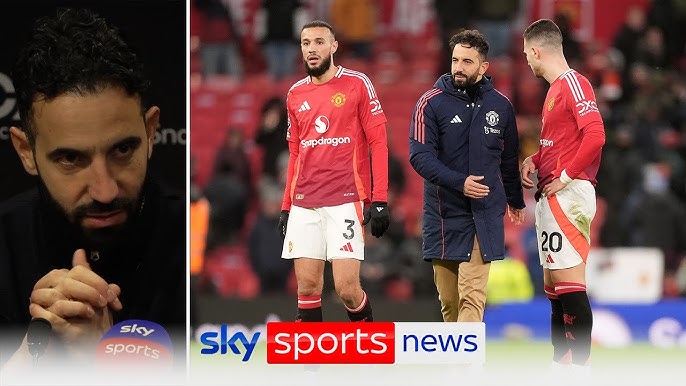Manchester United have invested heavily in their squad throughout the 2024/25 season, aiming to rebuild for both immediate success and long-term stability. However, despite the financial outlay, results on the pitch have been far from encouraging.
Sunday’s 1-0 loss to Tottenham Hotspur at the Tottenham Hotspur Stadium marked their 12th Premier League defeat of the season, leaving them languishing in 15th place. With eight losses in their last 12 league matches, discussions about relegation—something once unthinkable for a club of United’s stature—have started to emerge.
Though they currently sit 12 points above the drop zone, the fact that relegation is even a topic of conversation highlights the club’s ongoing struggles. United are now on course for their worst-ever finish in the Premier League era, a sharp decline from their disappointing eighth-place finish last season, which had already drawn criticism.
Big Spending, Bigger Questions
Since last summer, Manchester United have spent over £200 million on six first-team signings, yet their performances have only deteriorated. This raises serious concerns about how such a significant investment in new players has failed to produce positive results.
The club brought in five new signings to suit the vision of former manager Erik ten Hag. However, his tenure was short-lived as he was sacked before the end of October. His replacement, Ruben Amorim, immediately sought to reshape the squad, introducing his signature 3-4-2-1 system.
Amorim’s tactical approach relies heavily on wing-backs for width and attacking support, making those positions among the most crucial in his setup. Recognizing a glaring weakness on the left flank, United addressed the issue in the January transfer window by signing Patrick Dorgu from Lecce for an initial fee of £25 million. The Danish wing-back was seen as the first key component in Amorim’s tactical overhaul, but additional reinforcements will be needed to bring his vision to life.
A Crucial Summer Transfer Window
With significant squad changes required, the upcoming summer transfer window is set to be one of United’s most pivotal in recent years. Reinforcements will be necessary in several areas, particularly in the striker position, as goal-scoring remains one of the team’s biggest weaknesses.
United opted not to sign a striker in January, instead prioritizing a major acquisition in the summer to strengthen their attack for the 2025/26 campaign. However, they have already made one move in preparation for next season.
The club has secured a deal to sign 17-year-old Paraguayan defender Diego Leon from Cerro Porteño for £3.3 million. The highly-rated youngster, who visited Old Trafford last month to finalize his move, will officially join United in the summer.
Investing in the Future
Since acquiring a minority stake in Manchester United last year, INEOS has emphasized scouting and securing young talent. Deals for promising prospects like Chido Obi and Sekou Kone highlight their commitment to long-term squad building.
Leon, much like Obi and Kone, is viewed as a player with first-team potential. Despite being just 17, he has already made 19 senior appearances for Cerro Porteño and is a regular at the international Under-20 level. On Sunday, he scored the winning goal in Paraguay’s 3-2 victory over Argentina’s Under-20s, marking his first goal at that level.
While it remains to be seen how Leon’s career at United will unfold, the club wasted no time in securing his services with a pre-contract agreement. Given their track record of developing young players, United are optimistic that he could establish himself as a future first-team regular.
A natural left-back, Leon arrives at a time when United have struggled in that position. Alongside Dorgu, he could provide a long-term solution to a problem that has plagued the team for years.
At an initial cost of just £3.3 million, this signing represents a relatively low-risk investment that could yield significant rewards. If Leon lives up to his potential, United may have pulled off an incredibly astute piece of business.









